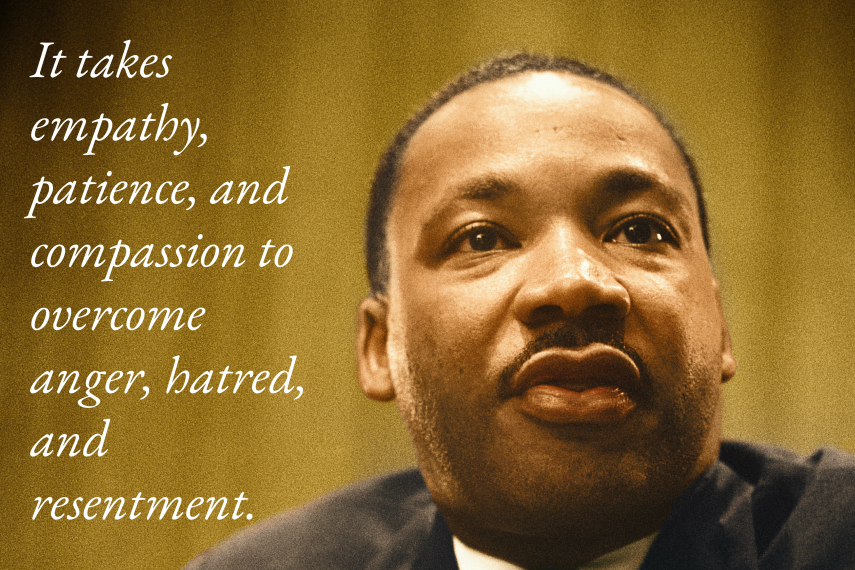Dr. Martin Luther King, Jr.: The Depression and Empathy That Contributed to His Humanity

On the third Monday of every January, we celebrate the legacy of Dr. Martin Luther King, Jr. This year, more than ever, his greatness seems even more poignant given the political and social unrest our society has recently faced.
Martin Luther King Jr.’s civil rights activism and ministries impacted lives and history in countless ways, but historians such as Dr. Nassir Ghaemi in his book “A First-Rate Madness: Uncovering the Links Between Leadership and Mental Illness” have documented King’s deep struggle with depression and suicidal tendencies.
Ghaemi, who runs the Mood Disorders Program at Tufts Medical Center in Boston, noted in a blog post on Psychology Today, Martin Luther King: Depressed and Creatively Maladjusted, “King knew what it meant to be maladjusted, psychologically, because he was not normal, psychiatrically. He had multiple periods of severe depression, and twice made suicide attempts as a child. Near the end of his life, some of his staff tried to get him into psychiatric treatment, but he refused.”
He explains that research studies show that depression can enhance empathy toward others and hypothesizes that King’s nonviolence resistance “can be understood as a politics of radical empathy…the goal was not to defeat the other but to change attitudes. Racism was not a political problem to be outlawed; it was a psychological disease to be cured.”
Martin Luther King Jr.’s History With Depression
According to historians, King experienced great highs and lows. Noted experiences include:
- He attempted suicide twice before the age of 13
- As an adult, he experienced several bouts of severe depression
- He kept his incidents with depression a closely held secret due to the mental health stigma at that time and concern civil rights opponents would use it against him
The more King became an integral leader in the civil rights movement, his depression intensified. As Ghaemi relates in his aforementioned book, “[i]n 1959, three years after beginning his public life, King felt depleted: ‘What I have been doing is giving, giving, giving, and not stopping to retreat and meditate like I should—to come back. If the situation is not changed, I will be a physical and psychological wreck. I have to reorganize my personality and reorient my life. I have been too long in the crowd, too long in the forest.”
Honoring Martin Luther King Jr.’s Greatness
Despite his struggles with severe depression, living his life under the constant threat of physical harm and assassination attempts, numerous arrests for peaceful civil disobedience, hostile threats, and accusations, King never wavered in his convictions, beliefs, objectives, and dedication to fighting racial inequality.
During this time of hope and change, and as we remember Dr. King, let’s honor his greatness and legacy through the work we do every day with individuals suffering from mental health and substance use disorders.
Everything we do, every word we say or write—whether in person or behind the safe guise of our computers on social media—can have an impact on others. Words matter.
“Our lives begin to end the day we become silent about things that matter.”
—Martin Luther King, Jr.
If you or a loved one suffers from depression, we can help. Learn more about our world-class depression treatment program at our Bridges to Recovery facility and take the first step toward lasting change today.






